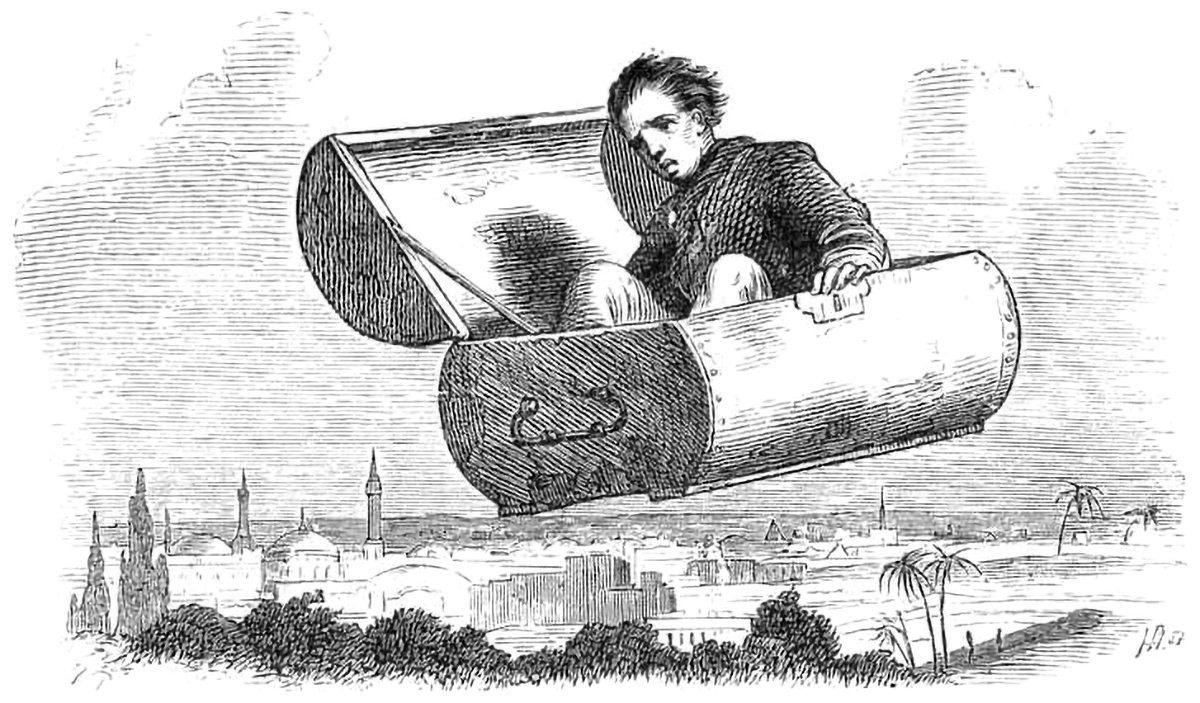The Flying Trunk
Illustration by Vilhelm Pedersen showing a scene from The Flying Trunk folktale by Hans Christian Andersen.
It was no ordinary trunk. Press on the lock and it would fly. And that’s just what it did. Whisk! It flew up the chimney, and over the clouds, and away through the skies. The bottom of it was so creaky that he feared he would fall through it, and what a fine somersault he would have made then!
These lines are from the folk tale The Flying Trunk by Hans Christian Andersen. It’s a quirky little story that features a merchant’s son, a magical suitcase, a princess, and a failed wedding. It starts with the son of a wealthy merchant who squanders his inheritance. He receives an old trunk from one of his friends as a parting gift, but he has no possessions to put inside it. Defeated, he sits in the trunk and soon learns that it can fly. He flies to the land of the Turks, where he finds a local princess. He visits the princess, tells her he’s a prophet, and regales her with fairy tales. He asks her to marry him, which she agrees to. A few nights later he meets her father, the Sultan, and his wife. He regales them with a fairy tale, and they agree to the marriage. To celebrate, the merchant’s son flies over the town setting off fireworks from the trunk. Unfortunately, a spark from the fireworks burns the trunk, so he’s unable to visit the princess on the wedding day, and they don’t marry. The tale ends with the merchant’s son wandering the world telling fairy tales to those who will listen. It’s an abrupt and unexpected end to an otherwise light-hearted tale.
Illustration by Gordon Browne from a 1919 edition of Hans Christian Andersen’s Fairy Tales, showing the Flying Trunk.
When the ability to fly appears in a folk tale, it gives an individual immense power over everyone else around them. It allows a character to achieve things previously impossible to them and it injects a sense of enchantment to the story. In The Flying Trunk, the ability to fly is granted to an individual who squanders it through his naivete and carelessness. First, he spends his entire inheritance. Then he loses the princess because of his carelessness. He does have a talent for telling stories, which helps him along the way, but his careless decision-making is his ultimate downfall. Oh well; at least he got to fly to Turkey.
Check out other posts from literary sources that deal with verticality here.


